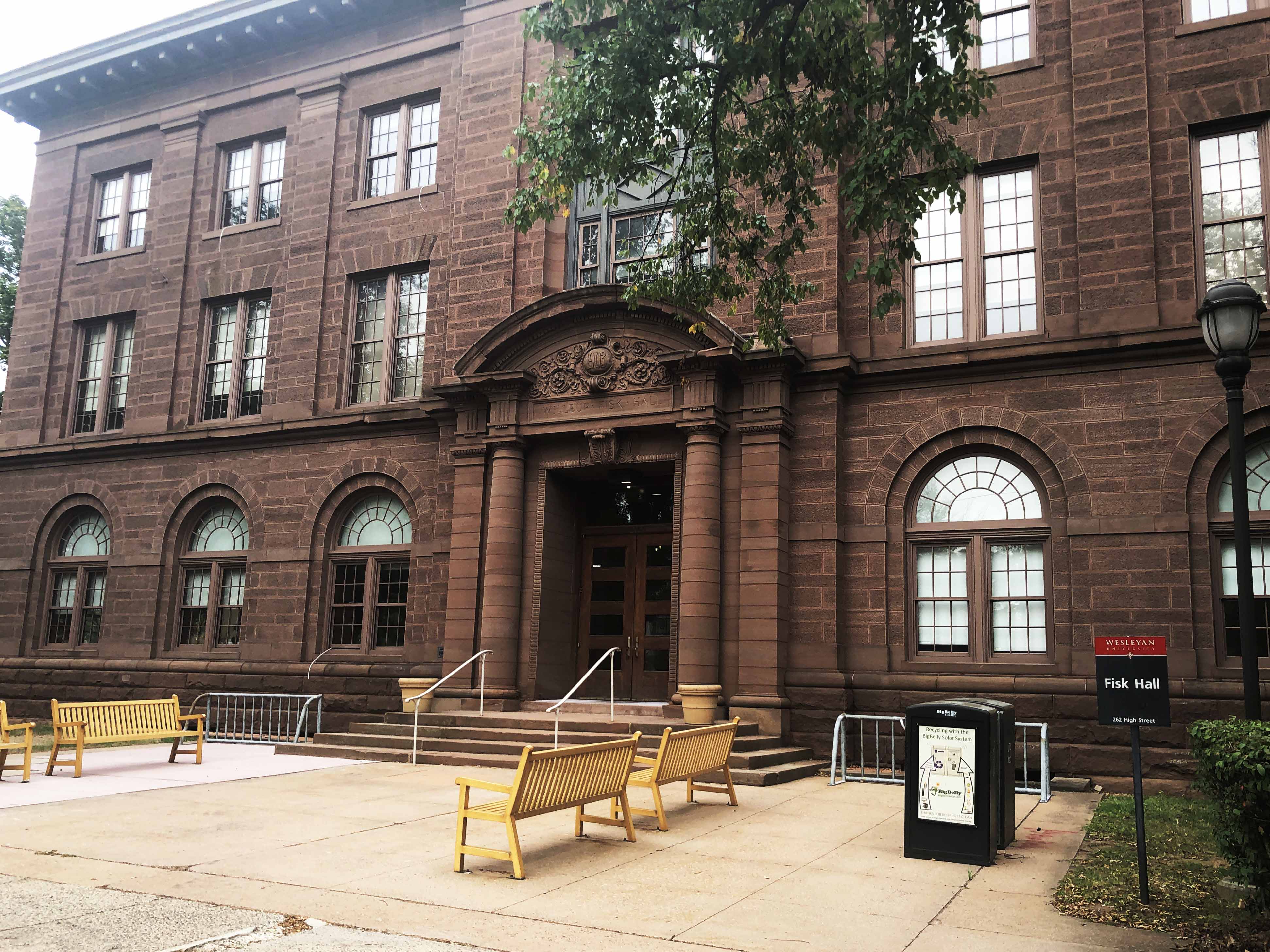
c/o Ava Nederlander, Photo Editor
The Fries Center for Global Studies (FCGS) has launched the Internationalizing the Curriculum Initiative, a program comprised of four two-hour seminars that gives faculty across all curriculum divisions an opportunity to incorporate global perspectives into their courses. Director of Study Abroad Emily Gorlewski created the initiative after study abroad programs were canceled for the fall semester.
According to the Wes and the World Blog, the initiative encourages faculty to create a new course, a new unit of a course, a reworking of an existing course, or another project that aligns with the central mission of internationalizing teaching and department curriculum. Faculty will present their projects to the FCGS in Spring 2021; each faculty member will receive an honorarium of $500 to participate in the initiative.
Director of The Fries Center for Global Studies and Professor of Philosophy Stephen Angle explained that the pandemic was, in many aspects, a catalyst for thinking more deeply about global structures, perspectives, and relations.
“All sorts of things around the global nature of the pandemic…make it clear how important it is to understand the relationships between our perspectives and those of other people around the world,” Angle said. “We can’t travel, but understanding global dynamics and other cultural perspectives is all that much more important now.”
Though study abroad has been suspended for the semester and many international students are unable to come to campus, Gorlewski emphasized the continued importance of incorporating international affairs and global perspectives into student learning.
“It’s not just during study abroad that students should be doing intercultural learning or global learning,” Gorlewski said. “It should also be infused throughout the curriculum, the co-curriculum, and everything that an institution does.”
Angle echoed the importance of increasing student exposure to global perspectives, saying that the new initiative is relevant to all faculty and all academic disciplines at the University.
“Ultimately, trying to find a discipline on campus that isn’t, in one way or another, bound up with questions of international/global concerns, well it’s impossible,” Angle said. “Whatever you choose, it’s all connected.”
While “internationalization” can be an ambiguous term and can carry colonial or Eurocentric connotations, the FCGS’s initiative seeks to reshape these notions into a new definition of internationalization that encapsulates a broader array of voices and perspectives.
“[The goal is to] collectively work out and think through the ideas of internationalization, the critiques of internationalization, and then come up with a direction that fits for us here at Wesleyan,” Angle said.
Several faculty members interested in the initiative have already signed up for the workshop series. The meetings will include common readings and in-depth discussions of how to further internationalize specific courses taught by the professors participating in the workshop series.
“Really there’s been faculty from all divisions and from really all different departments,” Gorlewski said. “There’s a department chair who is interested, so it’s going to be a really great group, I think.”
One faculty member eager for this initiative is Assistant Professor of Molecular Biology & Biochemistry Teresita Padilla-Benavides, who joined the University’s faculty over the summer. She says she replied as soon as she received the email about the initiative.
“It’s really cool because science is really diverse,” Padilla-Benavides said. “Most of the time we tend to be fixed on whatever we’re doing in our labs, in our tiny little world, and this [can] really open [our minds] up to what is happening in other places.”
In addition to joining this new initiative, Padilla-Benavides hopes to incorporate an ongoing partnership she has with a university in Mexico through which she has been involved with a series of science talks on Zoom hosted by scientists from around the world. She seeks to continue this work at the University with the help of the initiative.
“The goal is to have everybody welcome and invited to present,” Padilla-Benavides said.“We have students, we have undergrads, we have grad students, we have faculty. It’s quite diverse…we are trying to give opportunities to everyone.”
Zoom presentations such as these give students the chance to speak to people who don’t share their own culture, Padilla-Benavides added.
“Some people will never be exposed to diversity, and here we have all the colors of the rainbow,” Padilla-Benavides said.“It’s really nice to see how [the students] react to the variety of questions and the community, a widely open-minded broad audience.”
Gorlewski added that she hopes the initiative will be an opportunity for faculty to learn from and support each other in a collective effort to include more global perspectives in University courses.
“I think that the faculty in this cohort are going to have varying levels of experiences with doing this kind of work, so there’s definitely going to be a mentoring aspect to it, and that’s what I would hope for in the future years of it also,” Gorlewski said.
As the initiative is launched this semester, both Angle and Gorlewski are hopeful for the future of the program at the University.
“Wesleyan is not a one-size-fits-all place,” Angle said. “We’re not going to come up with the definition of internationalization for Wesleyan. But I think that, working it through collectively, we’re going to help each faculty from her own perspective or his own perspective to work these out in a way that makes sense for them.”
Rachel Hess Wachman can be reached at rwachman@wesleyan.edu.